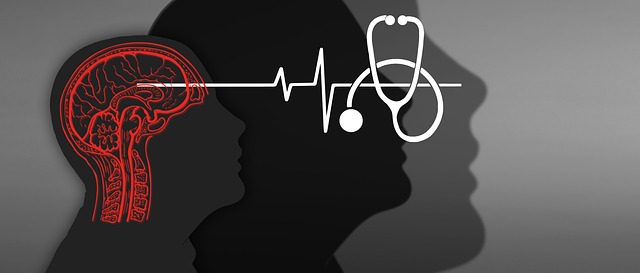Mindfulness meditation, a core practice of Arvada Codependency Therapy, empowers individuals to overcome unhealthy patterns, reduce stress, anxiety, and depression, while enhancing emotional resilience. Creating a sacred space at home fosters self-care and mental clarity, making it an integral part of the therapy process. Techniques like breath focus and body scan meditations, when practiced consistently, offer valuable tools for managing codependency and preventing relapse. Integrating mindfulness into daily life requires dedication but significantly contributes to personal growth and healthier relationships, with support from mental health professionals.
Discover the transformative power of mindfulness meditation with this comprehensive guide. Learn how this ancient practice can reduce stress, improve focus, and enhance overall well-being. From understanding its foundational concepts to practical techniques like breathing exercises and body scans, we’ll equip you to create a consistent routine. Explore strategies for integrating mindfulness into daily life, even amidst challenges, offering a path to greater self-awareness and resilience, just as Arvada Codependency Therapy facilitates personal growth.
- Understanding Mindfulness Meditation and its Benefits
- Preparing for Your Practice: Creating a Sacred Space
- Techniques to Master: Breathing, Body Scan, and More
- Integrating Mindfulness into Daily Life: Overcoming Challenges
Understanding Mindfulness Meditation and its Benefits

Mindfulness meditation is a practice that cultivates present-moment awareness and non-judgmental observation of thoughts and feelings. It involves focusing on one’s breath, bodily sensations, or specific objects to anchor oneself in the here and now. This ancient technique has gained prominence in contemporary psychology due to its profound impact on mental health and overall well-being. Studies have shown that regular mindfulness meditation can reduce symptoms of anxiety, depression, and stress, enhancing emotional resilience.
In the context of Arvada Codependency Therapy, mindfulness serves as a powerful tool for self-discovery and recovery. It encourages individuals to observe their thoughts and emotions without attachment or reaction, fostering a sense of detachment from unhealthy patterns. This practice promotes empathy building strategies by enhancing one’s ability to understand and connect with others’ experiences. Furthermore, it acts as an effective burnout prevention strategy for healthcare providers, helping them maintain emotional well-being promotion techniques while caring for others.
Preparing for Your Practice: Creating a Sacred Space

Preparing for your mindfulness meditation practice begins with creating a sacred space that fosters calm and presence. In the context of Arvada Codependency Therapy, establishing this dedicated area is an act of self-care and commitment to personal growth. Consider transforming a quiet corner in your home into a sanctuary where you can retreat to be present with yourself. This space should be free from distractions, reflecting your intention to focus on the present moment without interruptions.
The ambiance of your sacred space plays a crucial role in setting the tone for your practice. Incorporate elements that resonate with you, such as soft lighting, soothing scents, or meaningful artwork. The goal is to create an environment that encourages a sense of peace and invites deep breathing and mental clarity. By cultivating this mindful haven, you not only enhance your meditation experience but also contribute to efforts like Mental Illness Stigma Reduction Efforts and Cultural Sensitivity in Mental Healthcare Practice, promoting a holistic approach to well-being.
Techniques to Master: Breathing, Body Scan, and More

Mastering various mindfulness meditation techniques can greatly enhance your practice and overall mental wellness. One effective method is focusing on your breath—a simple yet powerful tool to anchor yourself in the present moment. Start by observing your inhalation and exhalation, noticing the rise and fall of your chest or the sensation of air flowing through your nostrils. This breathing exercise helps calm the mind and reduce stress, serving as a foundational practice for more advanced meditation techniques.
Additionally, incorporating body scan meditations into your routine can be transformative. Lie down in a comfortable position and bring your awareness to each part of your body, from head to toe. Observe any sensations, tensions, or discomfort without judgment. This practice helps foster a deeper connection with your physical self, allowing you to release held tension and cultivate a sense of relaxation. Techniques like these, when combined with consistent practice, can be invaluable tools in managing codependency and even offer prevention strategies for depression, as supported by various Arvada Codependency Therapy programs and mental wellness journaling exercises.
Integrating Mindfulness into Daily Life: Overcoming Challenges

Integrating mindfulness into daily life can be transformative, yet it presents challenges, especially when dealing with complex issues like codependency. For individuals seeking healing through Arvada Codependency Therapy, mindfulness serves as a powerful tool for self-discovery and personal growth. However, applying these practices requires dedication and understanding. One common hurdle is maintaining focus in our fast-paced world filled with distractions. To overcome this, start small by incorporating brief mindfulness exercises into your routine—a few minutes of breath awareness during morning coffee or a short body scan before bed. Consistency is key; regular practice deepens the benefits, allowing you to cultivate a more present and intentional mindset.
Additionally, integrating self-care practices alongside mindfulness can enhance well-being. Conflict resolution techniques learned in therapy sessions can be strengthened through mindful communication, where active listening and empathy become second nature. This, in turn, fosters healthier relationships and reduces triggers for codependent behaviors. Moreover, risk assessment for mental health professionals is essential when guiding clients towards mindfulness practices; it ensures a safe and supportive environment for their journey, helping them navigate challenges with resilience and self-compassion.
Mindfulness meditation is a powerful tool for enhancing mental well-being and cultivating a deeper connection with yourself. By incorporating techniques like breathing exercises, body scans, and mindful observation, you can achieve a state of calm and clarity. Whether you’re seeking stress relief or personal growth, regular practice can transform your daily life. For those dealing with codependency issues, mindfulness offers a unique path to self-discovery and recovery, as evidenced by the effectiveness of Arvada Codependency Therapy. Embrace these practices and unlock the benefits that await within your mindful journey.














